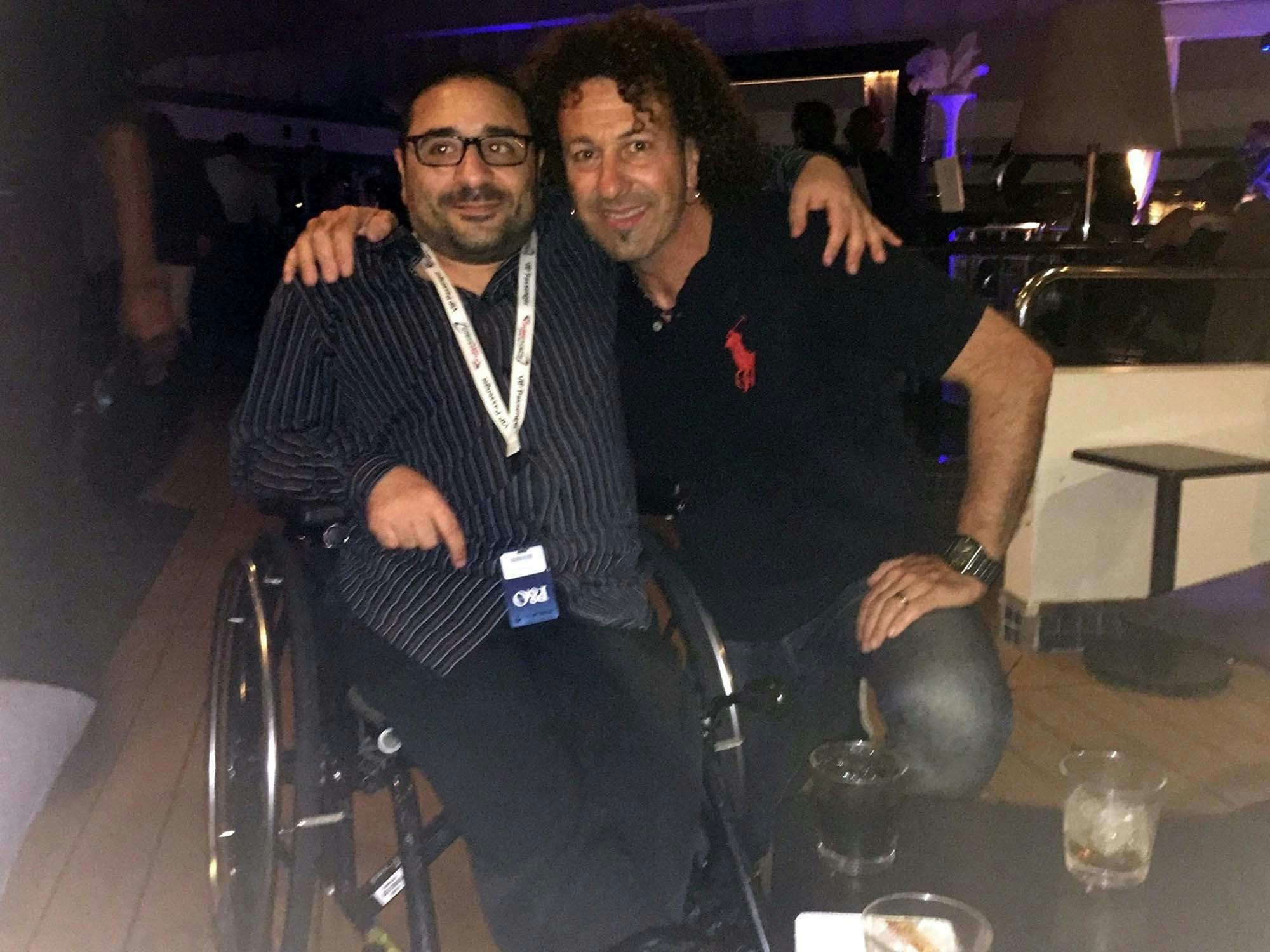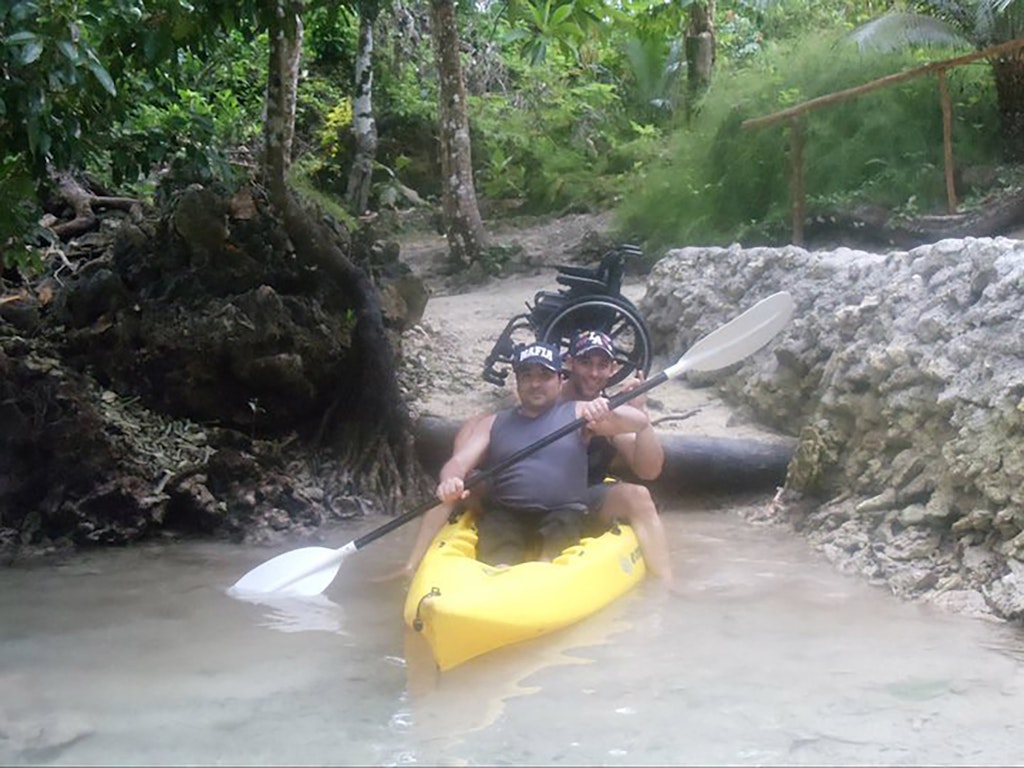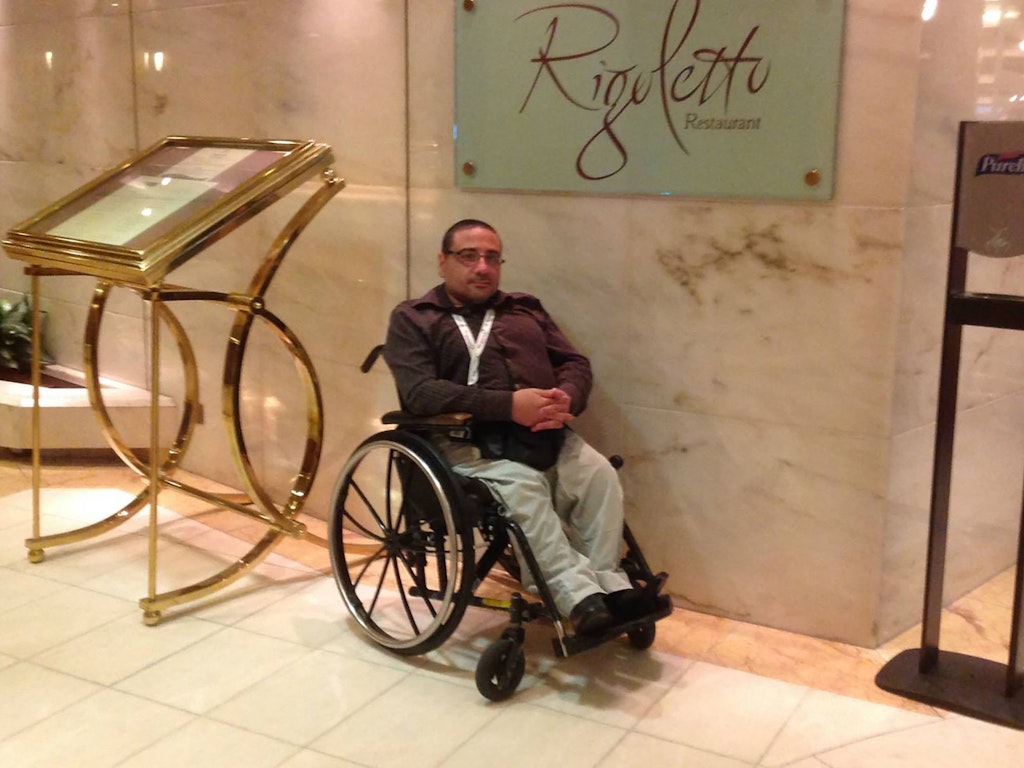Robert’s passion for wheelie good cruises
Last updated

Living with a disability hasn’t stopped one South Australian man from discovering the world, and even turning his passion for cruising into a business.
Robert De Pasquale lives with spina bifida, a birth defect where a baby’s spinal cord fails to develop properly, and hydrocephalus – a build-up of fluid in the cavities deep within the brain. He has been travelling for the last 20+ years.
His experiences with travelling while using a wheelchair, mostly on cruises, led him to become a cruise advocate to help other people with disability travel and discover the world.
Robert has a passion for cruising and visiting a wide range of locations. Despite the potential for difficulties while travelling with a wheelchair, Robert says he has had some amazing experiences.
“One of my most memorable moments was going to the Isle of Pines in New Caledonia four years ago. A little boy from the island came up to me and said, ‘Push, push!’ He wanted to push me in my wheelchair and, in the end, his mother let him. Then the boy and his mates took my friends and me around the island for three hours. We saw so many things that no other passengers would have had the pleasure of seeing,” he said.
“Another memorable moment was visiting the Blue Lagoon in Vanuatu. My best mate, Dom, took me on a canoe right around it. I was petrified as I can’t swim and the water was extremely deep, but after I got back to land, I wanted to do it again. Never in my life have I experienced something so amazing.”
Cruising can still have its challenges
Cruising makes travelling to different destinations much easier than other travel options and Robert explains most sections of a cruise ship are usually accessible. However, he adds that depending on the ship, there may still be limitations to where you can go. This includes once a ship gets to its port of call.
“Some ports of call are not accessible for the simple reason that the ship has to anchor a kilometre out at sea and bring guests to shore with tenders, which are the cruise ships lifeboats. Sometimes they will and sometimes they won’t let me on the tenders depending on the weather, and if the safety officer gives the go ahead,” he said.
“…There is a cruise ship at the moment that enables people with a disability to get on a tender because there is a lift that goes down and straight on [to the tender] but that [ship] may never come here. We don’t get the new mega-ships in Australia, only Royal Caribbean’s Ovation of the Seas.”
Once at a destination getting around can be difficult. Many urban areas, including those in Australia, are not accessible locations, says Robert.
“[Cities] should ensure laneways are accessible. There are a lot of buildings in city centres that are heritage or old buildings that have a lot of steps. I can’t get into some restaurants or bars. I also can’t get into some accommodation because of it and it is an easy fix, but they don’t do it,” he said.
He adds that “Australia has a lot of learning to do from overseas in the way they do accessibility within the urban area”.
Robert’s advice for travellers
A seasoned traveller, Robert has some advice for those looking to travel, and it starts with doing your homework.
“Make sure that you know what your expectations are of what you are wanting form your trip, whether that is having a good time, relaxing, [or] seeing as many sights as possible.”
Part of the planning process starts with knowing where you want to go and what you want to see and making sure those locations are accessible.
Robert says that if you don’t get educated about your upcoming holiday, then that is when you’ll start to have negative experiences.
“Most of the negative experiences start with the travel agent not giving [someone] the educated advice and [not providing] them with a package that will suit their needs. For example, giving them a cabin which is not accessible but they think it is. The person who has never been on a cruise before is none the wiser. Once they get onboard they find out this cabin is not accessible.”
“[People] need to be educated… It is rare that it happens, but I have seen it happen that [someone] does not have a good holiday because they haven’t been educated enough about their holiday whether it be the cabin or the destinations.”
An avid believer in travellers being educated, Robert even started his own business a few years ago, Wheelie Good Cruises.
“My business, Wheelie Good Cruises helps people explore options and educates them on the accessibility and usability of cruising.”
Managing expectations is key
Despite travelling to a wide range of locations around the world Robert has not had one completely negative experience. He says that it all comes down to your mindset, attitude and how you manage expectations.
“There will always be hiccups and situations that are out of your control, but it’s your mindset and expectations that are the key.”
He adds, “It all depends on your expectations. How you view your holiday, what you want to get out of your holiday. If you have a positive attitude ‘whatever happens, happens’ it’s fine. But if you’re someone who complains a lot you are not going to have a good time.”
“Be realistic with expectations. Don’t just think [you] will go and see every attraction or be able to do every shore tour because that’s unrealistic, remember your limitations. If you keep this in mind you’ll still have fun and return home from a memorable holiday.”
Although travelling with a wheelchair can be difficult, Robert says it can be done, it just might take some practice before leaving.
“A wheelchair can be both a blessing and a curse when you’re travelling. It might make travelling possible with far less pain, fatigue, or other symptoms, but it complicates things, too.”
“Many of us who use a chair for travel don’t use it full time, so we end up learning the ropes while on vacation. That’s not ideal, so do some practising around town before your trip.”
To read more about planning an accessible holiday, visit the accessible travel topic page.

